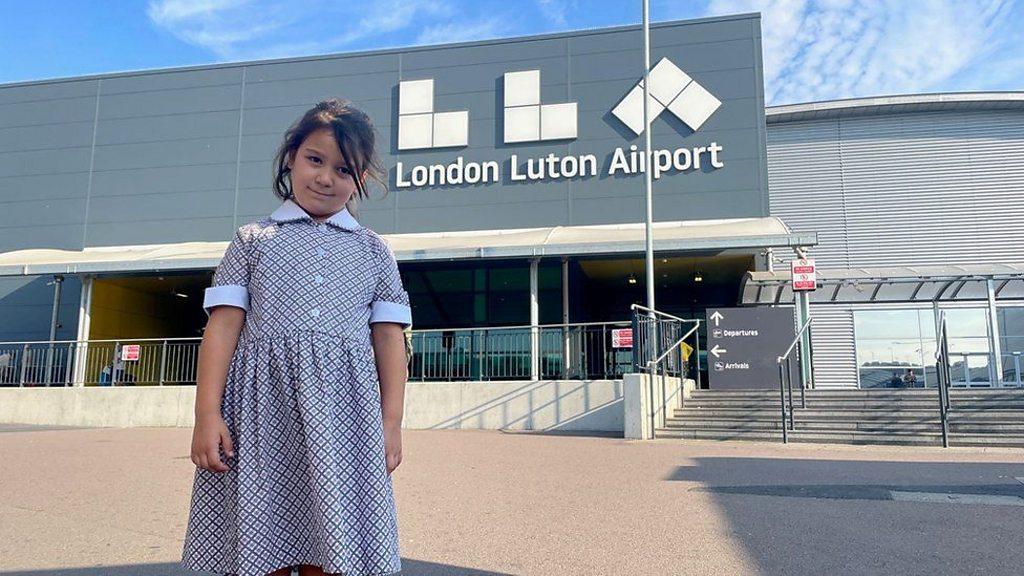Ukraine round-up: Using drones in the war and new concern over nuclear power plant
- Published
Watch: The BBC joins drone pilots under fire as they locate Russian targets
Kherson was the first major city in Ukraine to fall into the hands of Russian forces after the invasion began just under six months ago - but now, it's the one the Ukrainians have hopes of retaking.
Since last month, Ukraine and its allies have been saying the counter-offensive in the Kherson region is gaining momentum, with Maj Gen Dmytro Marchenko telling the BBC Ukrainian forces aim to recapture the city - strategically located to the west of the Dnipro river - within weeks.
But if they do, it looks unlikely to be through a traditional full-scale attack: instead, small drone units could be playing a significant role.
The BBC has met one of the drone pilots aiming to do just that - and he's using the call-sign Maverick, the name of Tom Cruise's character in the film Top Gun.

UN chief in Ukraine to meet Zelensky
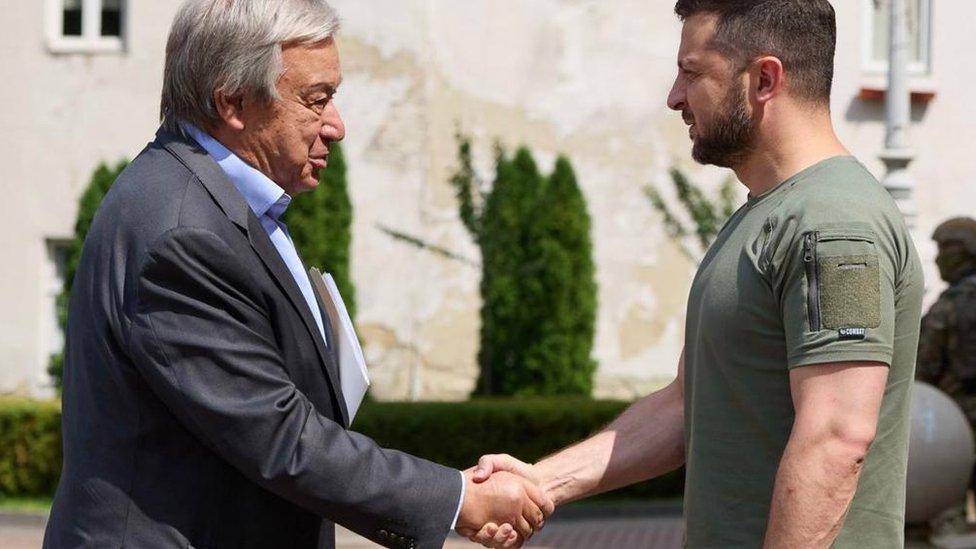
Antonio Guterres, United Nations secretary general, has been in the Ukrainian city of Lviv for talks with President Volodymyr Zelensky and Turkish leader Recep Tayyip Erdogan.
The UN and Turkey brokered a landmark deal that earlier this month saw grain exports resume from Ukraine's ports for the first time in months.
Tonnes of grain had been trapped because of Russian blockades, leading to shortages and higher food prices in other parts of the world. Before the war, Ukraine was one of the world's key agricultural producers.
Not surprisingly, the leaders discussed the scheme, with Mr Zelenksy later saying they would not only continue with the initiative, but also discussed "the possible directions of its development".
Mr Guterres plans to visit the Black Sea port of Odesa - from where the grain shipments have resumed - on Friday.

Calls for nuclear power plant to be demilitarised dismissed by Moscow
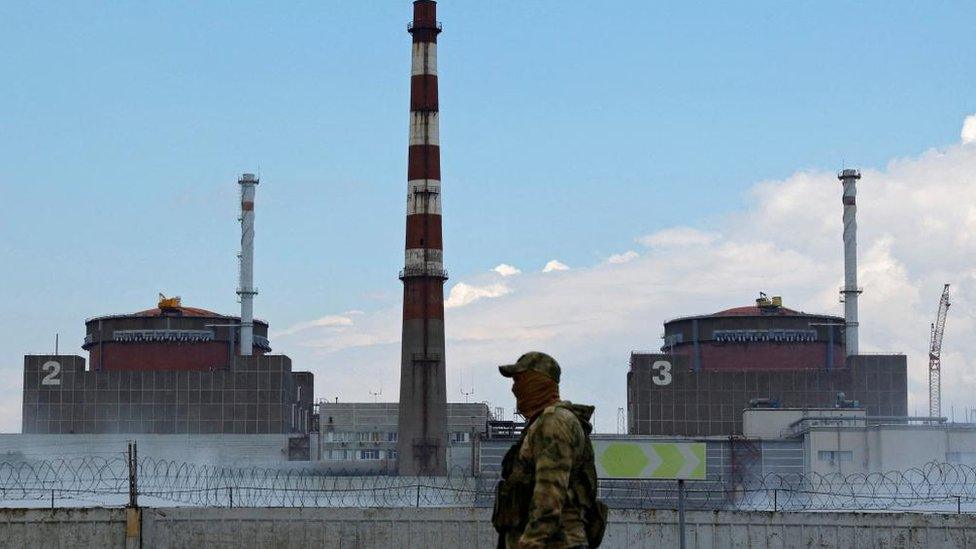
The three leaders also discussed the situation at the Zaporizhzhia nuclear power plant, around which heavy shelling has been taking place for weeks. Ukraine and Russia have each been blaming each other.
The plant - the largest in Europe - has been under the control of Russian forces since March, but has continued to function - although some staff working there have told the BBC they are "being kept at gunpoint"..
The Russians have been urged to hand control back over fears of what could happen if fighting in the area continues.
Mr Zelensky has described the ongoing stand-off as "Russia's nuclear blackmail" and urged the UN to ensure the plant's security and liberation. "This deliberate terror on the part of the aggressor can have global catastrophic consequences for the whole world," the president wrote on messaging service Telegram.
Mr Guterres, speaking on Thursday, said the plant should be demilitarised and re-established as "purely civilian".
But those demands have already been rejected by Moscow. A spokesman for the Russian foreign ministry, Ivan Nechayev, described Guterres's proposal as unacceptable, claiming it would make the facility "more vulnerable".
"That is the very reason that the proposals are unacceptable," he said.

Preparing for the worst at the besieged power plant
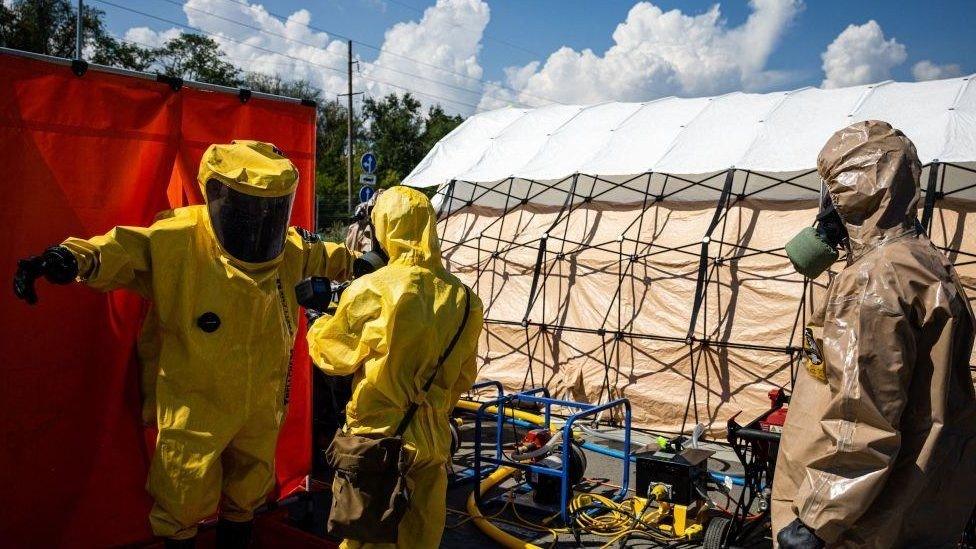
As deliberations continue over Zaporizhzhia's future, Ukraine is preparing for the worst.
The BBC's James Waterhouse visited a supermarket car park close to the site of the power plant which had been transformed into a training ground.
"Emergency workers are dressed in yellow hazmat suits," our correspondent says. "They are practising cleaning drills in the event of a radioactive contamination.
"They are watched by senior officials, who are keen to see how ready the region would be in the event of a worst-case scenario."

Six-year-old Madison joins father's Ukraine aid flight
Milton Keynes girl, 6, joins Ukraine aid flight after charity idea
Six-year-old Madison, from Milton Keynes in England, said she was upset to see scenes of the conflict on TV and started a charity with her dad Mark Baker, who works in aviation.
They chartered a plane from Luton Airport and flew to Bulgaria, which neighbours Ukraine, with toys and supplies for children who have fled their homeland since the Russian invasion, collected as part of their charity Hands Across the Skies.
Mr Baker said: "The need that we can sense here just by being in the room with the Red Cross and the Foundation for Good, it shows us that we're doing the right thing and gives us the momentum to continue."
- Published18 August 2022
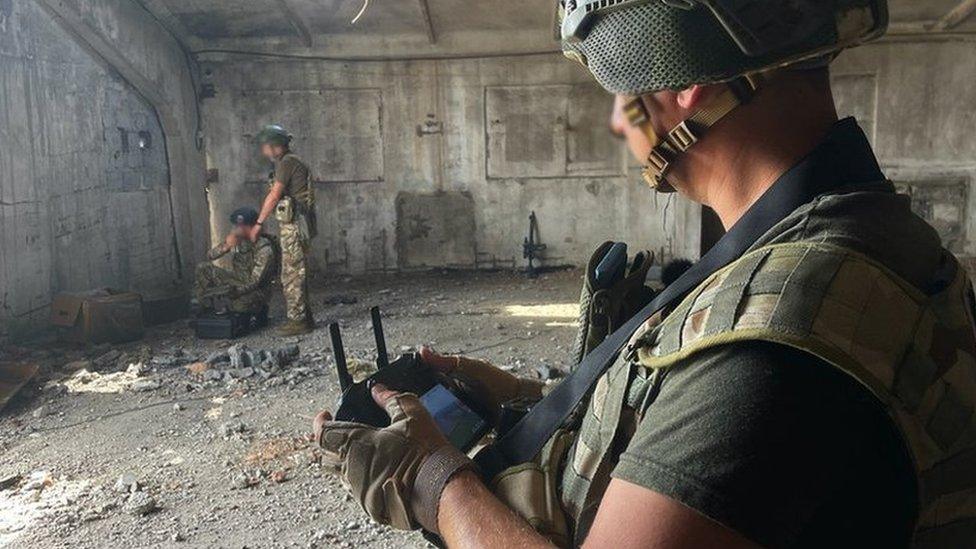
- Published18 August 2022
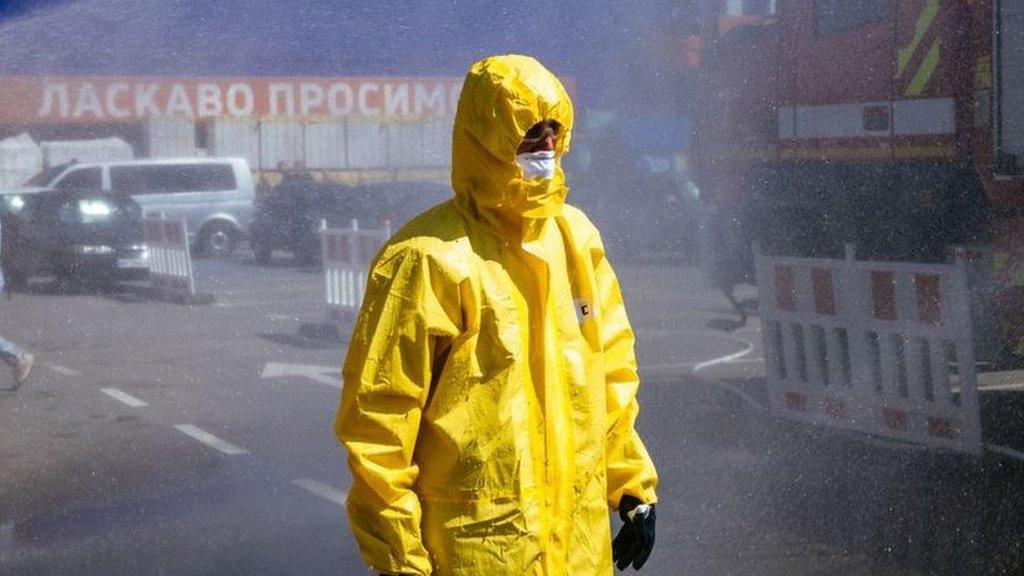
- Published18 August 2022
